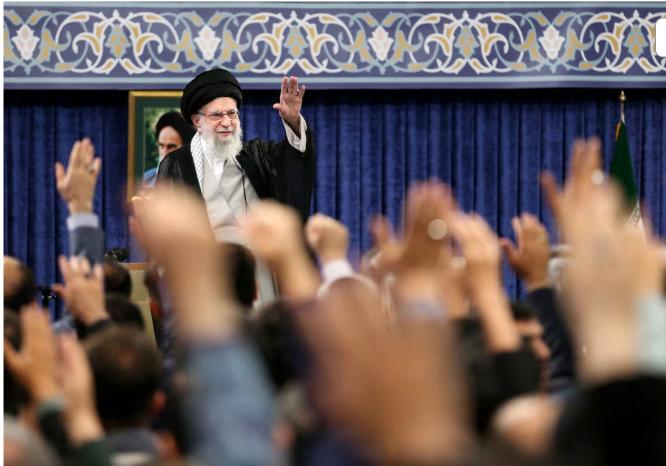Iran races to finalise Khamenei succession plans after Israeli threats

A three-member committee from a top clerical body, formed two years ago by Khamenei himself to identify his replacement, has accelerated discussions in recent days, according to five insiders familiar with the matter
Iran has intensified succession plans for Supreme Leader Ayatollah Ali Khamenei as fears grow over his safety following recent Israeli attacks and threats to his life.
A three-member committee from a top clerical body, formed two years ago by Khamenei himself to identify his replacement, has accelerated discussions in recent days, according to five insiders familiar with the matter.
Khamenei, 86, is being closely updated on the talks and has gone into hiding with his family under the protection of the elite Vali-ye Amr unit of the Revolutionary Guards, one senior security official confirmed to Reuters
The move signals a growing urgency within Iran’s leadership to prepare for a potential transition at a time of high regional tension.
“If he is killed, the establishment will move immediately to name a successor to project stability and continuity,” one source said. However, the sources admitted that Iran’s political direction after such a transition remains unpredictable.
A candidate’s loyalty to the revolutionary principles of Ayatollah Ruhollah Khomeini remains a core criterion in the succession process, one insider noted.
At the same time, top leaders are also weighing who might better ease domestic unrest and reduce international pressure.
The insiders identified two main contenders: Mojtaba Khamenei, the 56-year-old son of the Supreme Leader, seen as a symbol of continuity; and Hassan Khomeini, the 53-year-old grandson of Iran’s founding leader, who is aligned with reformists and considered a more moderate figure.
“I once again humbly express that this small and insignificant servant of the Iranian people stands ready to proudly be present on any front or scene you deem necessary,” Hassan Khomeini said Saturday in a message of support to the Supreme Leader, just hours before U.S. forces bombed Iran’s nuclear facilities.
Khomeini’s growing visibility amid the ongoing conflict with Israel and the United States has made him a more serious candidate in recent weeks, the insiders said, as some leaders consider a face that could present a more conciliatory tone both internally and externally.
Mojtaba Khamenei, however, continues to hold influence and is seen by many in Iran’s power structure as the best option for preserving the current political order. “He sticks to his father’s hardline stance,” said one source, though they warned that the final decision rests with the Supreme Leader and that the list of candidates could still change.
Israeli strikes that have killed several top Revolutionary Guards commanders may complicate the succession process, the sources said, as the elite force has historically played a key role in securing and enforcing the authority of the Supreme Leader.
